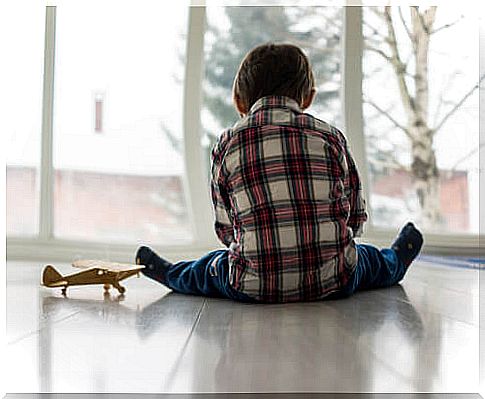How To Talk To An Angry Child?

Talking to an angry child can be really difficult. When your child has a tantrum, it is often impossible to negotiate or have a meaningful conversation with him or her. When a child’s rage prevents him from listening to anything you tell him, what can be done?
How to talk to an angry child
Parents often do not know how to react when a child is angry, let alone how to talk to him. When a child gets angry, starts to cry, becomes aggressive, or starts throwing things, parents often get bored and punish him severely.
Before parents go along with a child’s anger, it is a good idea for them to heed the advice of experts regarding positive discipline. This advice will help you maintain a healthy parent-child relationship and good interaction.

1. Avoid assault
When children are in a state of rage, parents often succumb to shouting, punishment, physical discipline, or a commanding tone of voice that causes cracks in family relationships.
The children are very intelligent and understand well what is being said to them.
That is why it is best to offer children good values, such as respect and good treatment for others.
Of course, this does not mean that children do not need discipline. Teaching boundaries is also an important factor in their development.
Some think that physical punishment is the cornerstone of parenting. In their view, discipline means physical discipline to teach true values.
However, this path is not good for your child’s learning.
2. Care about your child’s feelings
At a young age, children are full of raw emotion. They have not yet learned how to manage emotions like adults.
Therefore, they express anger and frustration without self-control, throwing themselves on the floor, kicking and shouting.
It is the job of the mother and father to set an example for the child. They need to be able to control their emotions and should not react impulsively. Otherwise, their reactions can damage children’s emotional development and cause long-term trauma.
3. Please be an example
If you think that screaming at children will help them control their feelings, you are wrong.
Parents must first learn to control their own anger because aggressive expressions, verbal or physical, only show violence to your child through example.
Your children are going through their own development. They observe how adults behave when they are angry. So remember that how you curb your own frustration will leave a long-lasting imprint on your child.
This will help reduce the tension in the situation and will make the conversation with your child easier.
4. Listen
If your child tries to tell you what is bothering him, he may express himself by shouting and crying. This can lead to a desperate situation.
Keep your temper, descend to your child’s level, and ask him or her to explain what it is all about. This creates a safe environment where the child feels that they are being listened to and cared for.
By doing so, your child’s anger will subside as you provide a solution to his or her problems.
Don’t ignore your child or respond sarcastically. Instead, show interest and care for him. This will help your child learn to respond positively.

5. Less drama
This does not mean that you give in to every whim or whim of a child. It is important to maintain balance. If your child often regrets his mind about small things, you need to help him see things from a different perspective.
Don’t get involved in dramatizing your child’s little things.
6. Stop all violence
If your child starts hitting or the situation gets out of hand, a calm conversation can be difficult. In this case, it is best to keep the child out of hand and look him in the eyes.
Tell him you don’t allow violent behavior in your home (or wherever you are). It is important to remain firm and persuasive when presenting this matter.
7. Take a deep breath
When your child is not obeying, you may experience the need to respond with a shout or an angry tone. In this situation, it is best to move to another room, take a deep breath and return to a calm state of mind.
Positive discipline is recommended. For example: “Noni, you decided not to fix your toys from the floor. Because of this decision, you can’t play with them. ”
8. Speak calmly
Telling your child that you understand how he or she feels is a great way to relieve tension. Tell your child that sometimes you also feel angry and frustrated, but you don’t start kicking and screaming.
This can help your child calm down and reflect on the situation.
Talking calmly to an angry child can help this calm down. You can also stroke her back, touch her hair, hug or something like that to help her calm down.
Your child can actually flirt to get attention.
Positive discipline is one of the most recommended means by family therapists to help a child reflect on the situation in peace.









